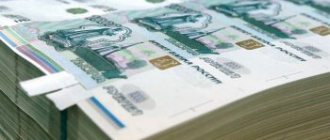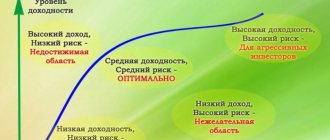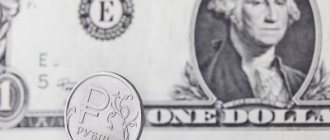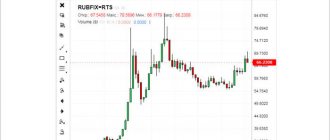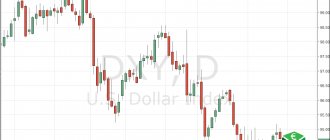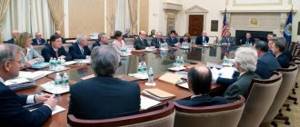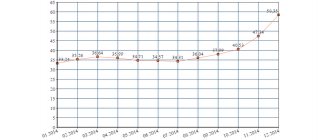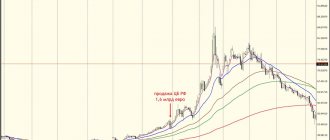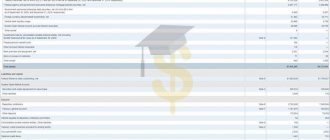US market. Another speech from Powell
Address for questions and suggestions about the site: [email protected]
Copyright © 2008–2021. LLC "Company BKS" Moscow, Prospekt Mira, 69, building 1 All rights reserved. Any use of site materials without permission is prohibited. License for brokerage activities No. 154-04434-100000, issued by the Federal Commission for the Securities Market of the Russian Federation on January 10, 2001.
The data is exchange information, the owner (owner) of which is PJSC Moscow Exchange. Distribution, broadcast or other provision of exchange information to third parties is possible only in the manner and under the conditions provided for by the procedure for using exchange information provided by Moscow Exchange OJSC. Brokercreditservice Company LLC, license No. 154-04434-100000 dated January 10, 2001 for brokerage activities. Issued by the Federal Financial Markets Service. No expiration date.
* The materials presented in this section do not constitute individual investment recommendations. The financial instruments or transactions mentioned in this section may not be suitable for you and may not correspond to your investment profile, financial situation, investment experience, knowledge, investment objectives, risk appetite and return. Determining the suitability of a financial instrument or transaction for investment objectives, investment horizon and risk tolerance is the responsibility of the investor. BKS Company LLC is not responsible for possible losses of the investor in the event of transactions or investing in financial instruments mentioned in this section.
The information cannot be considered a public offer, an offer or an invitation to purchase or sell any securities or other financial instruments, or to make transactions with them. The information cannot be considered as guarantees or promises of future investment returns, risk levels, costs, or break-even of investments. Past investment performance does not determine future returns. This is not an advertisement of securities. Before making an investment decision, the Investor must independently assess the economic risks and benefits, tax, legal, and accounting consequences of entering into a transaction, his readiness and ability to accept such risks. The client also bears the costs of paying for brokerage and depositary services, submitting orders by telephone, and other expenses payable by the client. The full list of tariffs of BCS Company LLC is given in Appendix No. 11 to the Regulations for the provision of services on the securities market of BCS Company LLC. Before making transactions, you also need to familiarize yourself with: notice of risks associated with transactions on the securities market; information about the client’s risks associated with making transactions with incomplete coverage, the occurrence of uncovered positions, temporarily uncovered positions; a statement disclosing the risks associated with conducting transactions in the market for futures contracts, forward contracts and options; declaration of risks associated with the acquisition of foreign securities.
The information and opinions provided are based on public sources that are recognized as reliable, however, BKS Company LLC is not responsible for the accuracy of the information provided. The information and opinions provided are formed by various experts, including independent ones, and opinions on the same situation can differ radically even among BCS experts. Given the foregoing, you should not rely solely on the materials presented at the expense of conducting independent analysis. BKS Company LLC and its affiliates and employees are not responsible for the use of this information, for direct or indirect damage resulting from the use of this information, as well as for its accuracy.
Jerome Powell declared the death of capitalism
An extraordinary meeting of the Federal Open Market Committee (FOMC) of the US Federal Reserve took place, postponed from the scheduled date of September 16-17.
The reasons for this transfer were not explained in any way. And if the preservation of the “zero” discount rate, at the level of 0-0.25% per annum, was absolutely expected in light of the coronavirus crisis and the upcoming presidential elections in the United States, then the speech of the Chairman of the Board of Directors of the Federal Reserve Jerome Powell, organized by the branch in Kansas City, can to say, I was drawn to a full-fledged sensation, although a little covered with the flair of familiar terms.
In fact, the head of the emission office declared the death of capitalism - no longer at the level of some theoretical forecasts (see the Club of Rome “Come on!” report at the end of 2021) and political declarations (see Putin’s interview with the Financial Times on June 26, 2021), but on financial and economic practice itself. This follows from his statement that the Federal Reserve no longer intends to be guided by the current market situation in its actions, but will ensure full employment and price stability with an inflation target of 2%, and a “comprehensive strategy review” will be conducted every five years.
If this is not a planned economy in its financial form, then what is it? I may be wrong over the years, but the last time such speeches, with mention of five-year plans and “confidence in the future,” were made, it seems, by Comrade Leonid Ilyich Brezhnev at the 26th Congress of the CPSU in 1981. And now, 39 years later, we hear the same thing from another leader, in another country. Is the new the well-forgotten old?
Of course, many experts will point out (and point out) that the current situation in the United States has very little in common with the Soviet Union during Gorbachev’s “perestroika.” Turning to the concept of “convergence,” half-forgotten in the modern political lexicon, but once again gaining popularity, they authoritatively remind that the similarity of certain external forms does not negate the fact that sharks, ichthyosaurs and dolphins are different classes of living organisms (fish, reptiles and mammals, respectively) ). And in this case, Mr. Powell’s speech was supposedly intended to reassure the global business community regarding the future prospects of the dollar, which is now rapidly depreciating relative to other world currencies, primarily the euro. And how could it be otherwise, if the Fed has churned out literally “out of thin air” about 6 trillion of these same “bucks” since the beginning of the year? And she didn’t just stamp it: about a third of this amount broke through from the usual sphere of financial speculation into the consumer market in the form of “coronavirus” benefits and other emergency needs of the federal budget. By the way, in just eight months, from January 1 to September 1, 2021, the US federal debt increased by 3.3 trillion. dollars, with the prospect of increasing to 4.5 - 5 trillion. dollars by the end of the calendar year.
In such a situation, talking about a “target inflation of 2% per annum,” and even declaring the continuation of the “helicopter” emission of dollars for an indefinite period, as Powell did in his speech, can be done solely for propaganda purposes. Because otherwise, the “continuation of the dollar banquet” will have to be urgently canceled - with understandable consequences.
Predicting these consequences is not particularly difficult and does not cause any optimism. After all, no one hid the example of the Great Depression in the United States and Roosevelt’s New Deal. In the fairly near future, America will face the same devastation and “barracks socialism,” only multiplied by the achievements of the “digital era” and raised to a power by energy problems. The dystopia “The Iron Heel”, described by Jack London, awaits. Actually, both the urgent postponement of the date of the FOMC meeting and the related speech by Powell can be considered as an urgent signal that the “banquet”, also known as the “attraction of unheard-of generosity,” will continue, no matter what. At least until the November 3 presidential election. Because today the Fed is working for Trump, financing both the federal debt deficit (including “coronavirus” payments and a negative foreign trade balance) and the level of stock market liquidity (the roots of Apple’s “record harvest”, whose capitalization reached $2 trillion, are issued by the Federal Reserve).
But, apparently, from the point of view of the “dollar magicians”, the postponement of the FOMC meeting and, accordingly, Jerome Powell’s speeches were the last chance to keep the situation within the acceptable limits. That is, in just two or three weeks, processes in the financial market could, according to their calculations, completely get out of control, and the words of the head of the Fed would mean no more than the words of Boris Yeltsin in August 1998 that “there will be no default” . In the meantime, the reaction turned out to be foreseen: within the euro/dollar pair, the American currency temporarily stopped falling, and the Dow Jones stock index again approached the level of 28,500 points. But it is impossible to predict how pronounced and long-lasting this trend will be. Most likely range: a few weeks to a few months.
Returning to the controversial topic of the similarities or dissimilarities between the modern United States and the “perestroika” Soviet Union, we must admit that experts who deny the deep, internal nature of such similarities are partly right. There is a phenomenon of the very “convergence of two systems” that was popular in the 1960s – 1980s. But the processes of both socio-political and biological convergence, according to the theory, are caused by a certain stable set of environmental conditions, to which different organisms have to adapt, willy-nilly, in order to survive. Moreover, in society such conditions change much faster and more often than in living nature - and this is an indisputable fact. Therefore, yes, the USA of 2020 is far from the USSR of 1990. But, perhaps, we should not limit ourselves to considering only one side of the coin. And if you look at the other, it is easy to see that the challenges facing America today are also fundamentally different from the Soviet problems of thirty years ago. And minus for minus in this case gives something very similar to plus. Which, you see, radically changes the assessment of both the current financial and economic situation and the prospects for its further change.
Subscribe to our channel in Yandex.Zen!
Click “Subscribe to channel” to read “Tomorrow” in the Yandex feed
Transcript of today's speech by Fed Chairman D. Powell in Atlanta
Powerful growth in the US stock market. The Fed is signaling policy easing for 2019.
01/04/2019 18:22 *Fed Chairman Powell: 2018 was a good year for the US economy 18:23 *Powell: Most important data remains strong, momentum continues into early 2019 18:23 *Powell: Wage growth is welcome news 18: 24 *Powell: Accelerating wage growth does not raise inflation concerns 18:25 *Powell: Consumer spending was strong through December 18:26 *Powell: ISM report was worse than expected 18:27 *Powell: ISM index is now in line with continued moderate economic growth 18:28 *Powell: US data looks set to continue to point to continued good momentum heading into 2021 18:29 *Powell: China's economic weakness is spreading to other Asian markets and commodity prices 18:30 *Powell: In China and other emerging Asia should continue to grow this year 18:32 *Powell: Monetary policy closely linked to risk management amid mixed signals 18:33 *Powell: Subdued inflation numbers mean we will be patient as we watch the situation unfold in economics 18:34 *Powell: We are always ready to change policy, even “significantly” if necessary 18:35 *Powell: We will be ready to adjust policy quickly, showing flexibility 18:36 *Powell: Market participants take into account downside risks 18:37 *Powell: Markets are ahead of data, expressing concerns about global economic growth and trade tensions 18:38 *Powell does not believe that the Fed's balance sheet reduction led to recent market instability 18:39 *Powell: I would adjust the balance sheet reduction process without hesitation if there are problems 18:40 *Powell said he will not resign if the president asks 18:47 *Powell: We will wisely use all the tools available to us in future economic slowdowns 18:55 *Powell: The best the Fed can do , is to be as transparent and predictable as possible 18:56 *Powell: A strong US economy is good for the whole world 18:57 *Powell: You need to have an understanding of the natural rate of unemployment, around which there is huge uncertainty 18:58 *Powell: Inflation is under control 19:05 *Powell: We have done a lot of work with the banks, I am pleased with their condition at present 19:16 *Powell completed his speech in Atlanta
01/04/2019 / About markets / Leave a comment Tags: Powell, Fed
Career
After completing his studies at Princeton, he worked for a year as an assistant to Republican Pennsylvania Senator Richard Schweiker. After Georgetown University, he clerked for a judge on the US Court of Appeals for the Second Circuit (New York). In 1981-1983 - a lawyer at Davis Polk & Wardwell (an international law firm headquartered in New York), and in 1983-1984 - at Werbel & McMillen (New York).
In 1984, Jerome Powell changed careers and became an investment banker at Dillon, Read & Co (later part of the Swiss financial holding company UBS), where he was responsible for corporate finance, mergers and acquisitions. At the time of leaving the company in 1990, he served as its senior vice president.
In 1990, he joined the Treasury Department, where he first became an assistant and then deputy to the Secretary of the Treasury, Nicholas Brady (from 1970 to 1988, Brady chaired the board of directors of Dillon, Read & Co). Responsible for policy regarding financial institutions and the ministry's debt market. After the 1991 scandal at the investment bank Salomon Brothers, in which one of its traders submitted false bids for Treasuries, Powell oversaw an investigation into the bank. He also prepared proposals, on the basis of which changes were subsequently made to the system of auctions of government securities.
In 1993, he began working as managing director of a large bank, Bankers Trust (acquired by Deutsche Bank in 1998). However, in 1995, after a scandal surrounding derivative contracts, which resulted in losses for clients, he returned to Dillon, Read & Co.
From 1997 to 2005, Jerome Powell was a partner at one of the largest investment funds, the Carlyle Group.
In 2010-2012, he worked as a visiting scholar (for a salary of $1 per year) at the Bipartisan Policy Center (a think tank in Washington), where he worked on fiscal issues.
He served on the boards of various charitable and educational organizations. In 2008, he became a managing partner of the Global Environment Facility, investing in projects to develop sustainable energy.
